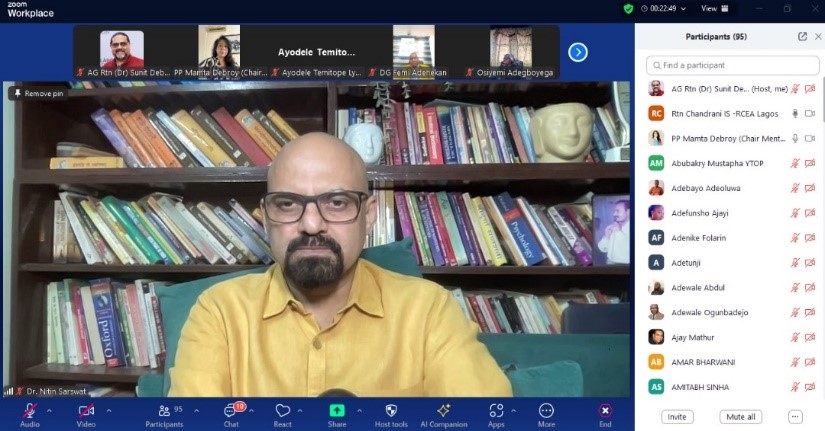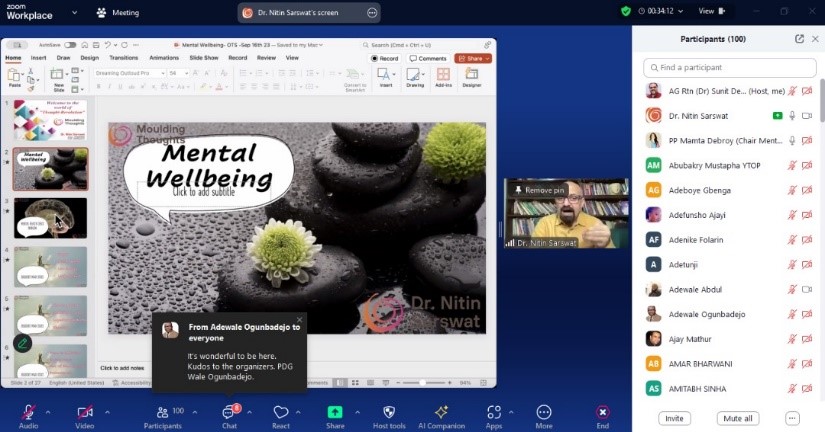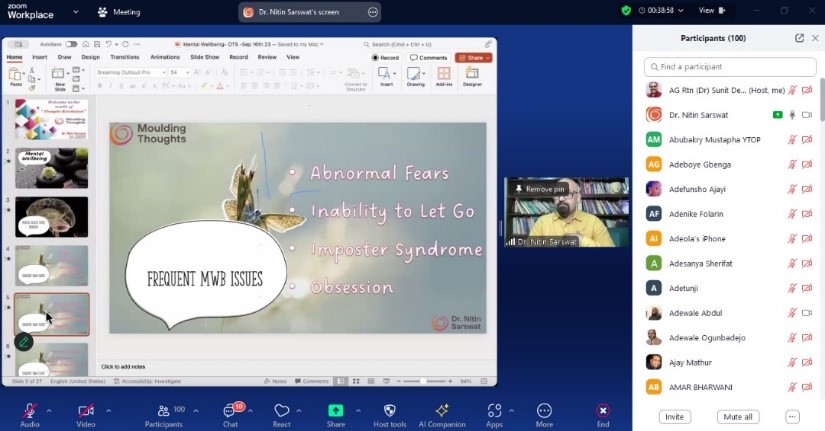Mind Your Mind: Mental Health Wellbeing Matters
Mental Health (SDG 3)
Mental health issues affect millions worldwide, with mental illness being a leading cause of disability. According to the World Health Organization (WHO), depression alone affects approximately 264 million people globally, while Nigeria faces unique challenges with 25% of its population suffering from various mental illnesses. However, despite this high burden, Nigeria has fewer than 250 practicing psychiatrists to serve over 200 million people (weforum, WHO). This leaves a significant gap in addressing mental health concerns, especially in underserved communities, where stigma, lack of awareness, and limited access to resources further aggravate the situation.
Mental health issues often lead to deteriorating relationships, impaired productivity, and social isolation. As mental well-being directly impacts overall health, it is critical to prioritize mental health advocacy and support. The “Mind Your Mind” Mental Well-Being Session, held in collaboration with Rotary District 9112, held in commemoration of World Mental Health Day, aimed to bridge this gap by fostering awareness, educating the community, and providing valuable resources to address mental health challenges.
The primary goals of the Mind Your Mind project were:
- Raise Awareness: Educate participants about the importance of mental health and its broader societal implications.
- Promote Open Dialogue: Create a safe space for community members to discuss mental health issues without stigma or fear.
- Provide Resources: Share tools and coping strategies to promote better mental health care.
- Build Community Support: Foster a supportive network to help reduce the stigma surrounding mental health.
On October 10, 2024, the Mind Your Mind session was held virtually in honor of World Mental Health Day. The session featured Dr. Nitin Sarswat, a renowned international life coach and mental health consultant, who provided valuable insights into the importance of mental well-being.




KEY DISCUSSIONS:
- Differentiating Mental Health and Mental Well-Being: Dr. Sarswat explained the key differences, clarifying that mental health deals with our emotional and psychological state, while mental well-being encompasses overall life satisfaction and resilience.
- Importance of Mental Health: The session emphasized the adverse effects of neglecting mental health, including increased risks of mental illnesses, impaired relationships, and reduced productivity.
- Common Mental Health Challenges:
- Addiction: A major mental health issue affecting individuals and families.
- Jealousy and Self-Doubt: Emotional hurdles that impact personal growth and relationships.
- Fear: Discussing both fear of the known and the unknown, and how it shapes our behaviors.
- Interactive Session: Participants were encouraged to ask real-time questions, and Dr. Sarswat offered personalized guidance and coping mechanisms. In more severe cases, private consultations were suggested to provide additional support. IMPACT AND COMMUNITY ENGAGEMENT:
The event received overwhelmingly positive feedback from participants, with 80% of attendees stating they gained a clearer understanding of mental health, and 60% committing to actively seeking help when necessary. Participants expressed gratitude for the session’s depth, especially in addressing real-world challenges such as addiction and emotional struggles like fear and self-doubt.
The interactive Q&A segment was particularly impactful, as it allowed participants to engage directly with the speaker, sharing their mental health struggles and receiving immediate support.
Through this event, we successfully deepened the community’s understanding of mental health, reinforcing the message that mental well-being is a collective responsibility. Furthermore, we are committed to organizing future initiatives that build on this foundation to foster a healthier, more supportive environment.
CONCLUSION:
The Mind Your Mind initiative was a significant step toward addressing mental health challenges in our community. Through open dialogue, resource-sharing, and a focus on reducing stigma, we contributed to a greater understanding of mental health and well-being. With ongoing efforts, we can continue to foster a more supportive environment where everyone feels empowered to prioritize their mental well-being.
By advocating for mental health, we are not only improving individual lives but also enhancing the collective health of our society. We look forward to your support in scaling this impact.

Add Comment